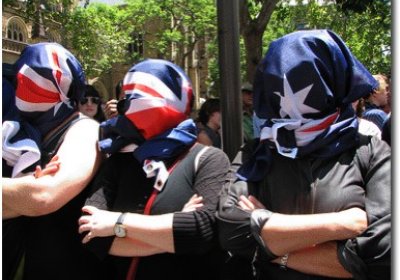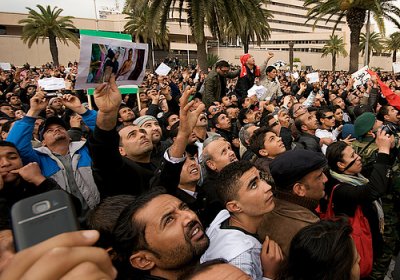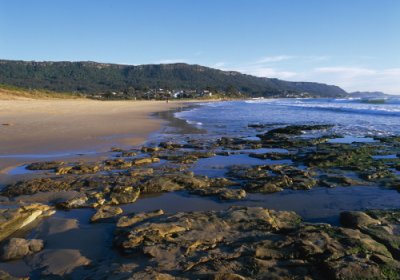After ousting former President Zine El Abidine Ben Ali and his supporters from office, the Tunisians have again hit the streets — this time, to demonstrate against the visit of US Secretary of State Hillary Clinton.
About 300 people demonstrated at Tunis’ central Avenue Bourguiba against her visit on March 16, Reuters said.
The next day, Clinton met with President Foued Mebazaa and Prime Minister Beji Caid Essebsi. About 100 people protested, in the face of dozens of riot police, two military helicopters and a water cannon, Al Jazeera said.
Patrick Harrison
In the face of renewed protests in Tunisia's capital, Tunis, Tunisian prime minister Mohamed Ghannouchi resigned on February 27.
This was one of the key demands of the popular movement, which has continued to push for democracy in the aftermath of the January 14 toppling of dictator Zine El Abidine Ben Ali.
In another concession to the mass movement, the interim government announced that elections for a constituent assembly to draft a new constitution would be held on July 24, AlJazeera.net said on March 4.
Disgraced Tunisian foreign minister Ahmed Ounaies resigned on February 13 from the interim government set up after dictator Zine El Abidine Ben Ali resigned on January 14 in the face of huge protests.
The government has introduced fresh reforms as protests for democracy and economic justice continue in the north African country.
Ounaies, a former diplomat whose appointment to the interim government was announced on January 27, described French foreign minister Michelle Alliot-Marie as “above all a friend of Tunisia”.
Activists fighting to defend Sandon Point won an important victory in the Land and Environment Court in early February, opening the way for ongoing legal challenges to Stockland’s development at the site.
Stockland has been clearing the site to build the McCauley's Beach residential development. It is the last green strip from the escarpment to the coast in the northern Illawarra.
A community campaign against the development has been going for over 10 years. In late 2009, then-planning minister Kristina Keneally approved the development under Part 3A planning laws.
In her January 26 speech to commemorate Australia Day, Prime Minister Julia Gillard took the opportunity to celebrate what she called the “bonds of mateship”, which had been “on such strong display” in the aftermath of the recent devastating floods.
However, this year’s Australia Day celebrations were also marred by violence. This is not unusual.
Police made 180 Australia Day-related arrests throughout New South Wales on January 26.
Ongoing democracy protests in Tunisia, which continued beyond the January 14 overthrow of President Zine al-Abidine Ben Ali to demand a government free from the former ruling party, were hit by a wave of vicious repression in late January.
The protesters from the “caravan of liberation”, which had camped for five days outside Prime Minister Mohamed Ghannouchi’s offices in Tunis, were driven off the streets on January 29.
“This is a message to the people and the whole world that what you see is a revolution, not an uprising or a coup,” a woman told Al-Jazeera on January 23. She was among people from across Tunisia who descended on the capital and surrounded Prime Minister Mohamed Ghannouchi’s residence.
The national secretary of the Shop, Distributive and Allied Employees Union (SDA), Joe De Bruyn, recently recommitted the SDA to a homophobic policy of opposition to equal marriage rights.
A member of the ALP national executive, De Bruyn said in November that were he in Prime Minister Julia Gillard’s position he would have “killed the issue off once and for all”, ABC online said.
In our society, the heterosexual nuclear family is portrayed as the only legitimate model for relationships.
Sydney is the “sex capital” of Australia, said an article in the November 12 Daily Telegraph, which called the city the “Amsterdam of the South Pacific”.
The article reported recent figures from the Government Interagency Brothels Taskforce that showed 271 legal brothels in the state, as well as claims that “the industry is being infiltrated by organised crime”. The figures, which were labelled “shocking”, were blamed on “dysfunctional planning laws and legislation” by one figure quoted.
The latest appeal against Stockland's Sandon Point development was dismissed on November 25, clearing the way for development.
The case has been in the Land and Environment Court since August.
The appeal was launched by the Sandon Point Aboriginal Tent Embassy (SPATE), which has been campaigning against the development for 10 years.
The community campaign has opposed the Sandon Point development because of impacts on the environment and Indigenous cultural heritage, as well as a lack of transparency and democracy in the approval process.
More than 100 Palestine solidarity activists gathered in Melbourne over October 29-31 for Australia's first national BDS conference.
Palestinian civil society groups called for boycott, divestment and sanctions (BDS) against Israel five years ago. The BDS campaign demands an end to the Israeli occupation of Palestine, the dismantlement of the separation wall in the West Bank, equal rights for Palestinian citizens of Israel, and the right of return for Palestinian refugees.
Over October 29-31, Palestinian solidarity activists from around Australia and the world will meet for the first national boycott, divestment and sanctions (BDS) conference.
The call for a global boycott campaign against Israel was first launched in July 2005. It has become a big part of the movement against the occupation of Palestine.
- Previous page
- Page 5
- Next page









